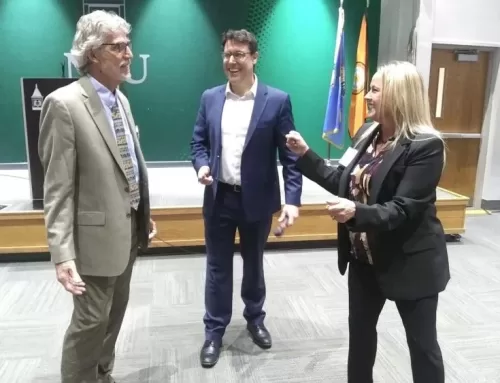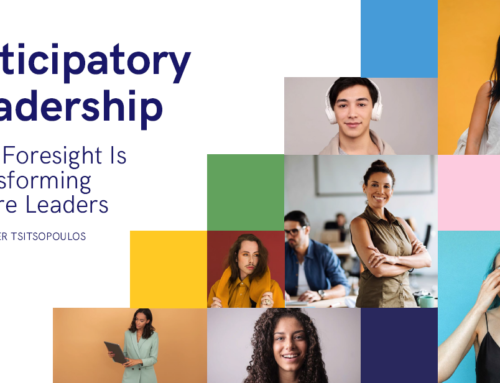According to the CIA World Facebook, the United States is ranked 106 out of 200 countries in unemployment, and with mounting concerns with its growing debt and globalization gobbling up jobs to the East due to their ten-fold lower pay, joblessness to the tune of 10% maybe be here to stay for America.
Wherever you fall on the side of classical versus Keynesian unemployment, unemployment has steadily rose over the past 60 years and Global Employment looks precarious as the countries who pair their austerity measures over their job creation will continue to weaken their economic foothold.
Where can these jobs come from to fill these voids? It appears freelancing and consulting may be a way through for many American workers. Co-working offices and co-operative eavesdropping has spawned income for many, and tons of savings for companies who look to cushion themselves against the rough economy.
For futurist Glen Hiemstra, this means the future of jobs is in work stints where people go from project to project during their work career rather than the steady career growth of a firm.
I interviewed two projecteers for Houston Futures to discuss what’s it really like to put work in your own hands and where they feel their future is in consulting.
Orissa Bey is a 30-year old entrepreneur with a child development and art education background that is CEO of Possibilities Unlimited, a network planning and life-coaching agency she started 3 years ago. Jenny Michael lost interest in working for a previous large medical institution and found a second work life as an independent consultant who specializes in managed care contract negotiation and physician credentialing. Her first customer was her previous employer.
Houston Futures: Briefly describe your venture and who you are and how you got here
Jenny Michael: Mostly I represent hospitals and physician practices who hire me to analyze and negotiate their contracts to get the best reimbursement rates possible from insurance companies. I also do physician credentialing and human resources consulting including renegotiating their benefit packages.
Orissa Bey: Well, my business is called Possibilities Unlimited. It started out as an unique singles event planning start up and guys started asking me about what I wear to your event or how do I approach a girl at your event, so I said to myself I need to get paid for my advice. I then evolve the company into a combined networking slash life consulting. I consult people on what to wear, how to approach people, how to speak to people, and then I hold networking events where I watch and see how they do.
HF: So does this fit with your education background and background to get this whole thing to come together?
O: I have a background in child development and art, and throughout my entire life, I have always thrown parties and events. I’ve always had side businesses. Even in high school, I had parties that people paid to get into.
J: I was liberal arts major which was pretty useless in the real world, so I went into Human Resources and worked at a few different companies, and gained a really strong HR background. Within HR, I really liked compensation the most and I ended up working specifically in physician compensation for about four years. I enjoyed the analytical work and I knew I wanted to stay in health care, so I decided to go back and get my graduate degree in health care management and policy so I quit the last company I worked for and began taking classes full time while also picking up consulting projects on the side.
HF: So you quit your company then went to work back for them?
J: I wanted to be my own boss and I didn’t want to work for the man or answer to anybody else so I gave it a shot. I left on good terms and given that they are in the same industry, they are now a client of mine. That relationship with my old company helped me create what I have now.
HF: In order to make sure you have work to do, what do you do?
O: I’m a part of a lot of different professional organizations, so I’m able to share in project ideas through them. I’m always finding out about different events, calling people and businesses for sponsorships, calling venues, and visiting venues for to make sure they’re ready for events. Networking and creating that network is key.
J: Right now (companies) come to me. I haven’t done anything or any marketing. I’m actually turning business away. Someone calls me and asks me to do one project which turns into another project, and then they refer me to somebody else. I currently have six or seven big projects going on with several different companies and I also have two clients that keep me on a monthly retainer.
HF: Project work: Is it scary to go job to job project to project? Is it easier to deal with or is it daunting?
J: Right now it’s not because I’m turning away business but I know it will not always be like that. I know it can’t continue like this without me trying to market myself, which scares me because I have no idea how to do that. The thought of this ending is scary enough to make me consider going back into the corporate world. I don’t want to, but I definitely think about it.
O: I do feel like there will always be something out there. I feel that possibilities really are endless, so there will always be something to latch onto.
HF: So where do these jobs and or projects come from, do they come from previous companies, word of mouth, the work you did, where does it all come from?
O: Word of mouth is big. Facebook is an awesome tool. I don’t use so much Twitter or Linked In, but Facebook is the primary tool. I have a ridiculous amount of friends on Facebook, and I’m constantly being asked ‘hey do you know so and so’ and that’s how it starts. It’s extremely important. I work with associations such as the Houston Lawyers Association, Texas Young Professionals, the Urban League. I plan mixers for these organizations and my own at lounges, boutiques, jewelry stores, and car dealerships. Wherever, we can find a viable venue, we can have an event.
J: When I left my last employer, they almost immediately turned around and hired me for a project to do for them because I left with a lot of knowledge that not many others have. After that they referred me to another company which referred me to another. It just steamrolled.
HF: Is training necessary or is it experience or is it your own know how?
J: I’m not the only one who does what I do, but because most of my classes require me to study healthcare reform and the many complicated constantly changing policies, I probably know far more than most in my field. I think I’ve created a niche. I’m not the only one, but I’m well informed.
O: Experience is the most important thing. I read tons of books as well though. Relationship books, conversational books, how-to, and inspirational books form my view.
HF: How do you get paid?
O: Right now, I get paid as supplemental income. When I do life consulting it normally comes in package deals or hourly with two hour minimums. Depending on what they want, we have them fill out contracts and introductory questionnaires. This comes in with personal shopping for people such as picking out what styles and colors they wear or helping a guy come up with questions that he should ask a girl while he is on a date. If he should stay with that person or should he go.
J: Mostly I charge by the hour. First I determine how much money I would make annually working for an institution doing what I do. Then I work backwards by adding in the cost of benefits, business expenses, and adjust up a bit to account for some potential bad debt to get to that annual dollar amount and then divide by the number of my expected billable hours per year. I found all of this on google.
HF: So you googled consulting?
J: I found an Excel worksheet that showed me all of the calculations I should use.
HF: Are you going to be able to sustain this?
J: I’d like to, but one drawback for me is that I do not feel like I’m part of a team. For the first year it was great, but I feel like I miss being part of a team and working with other people.
O: I definitely think it will work. If you create a good reputation and surround yourself with the right people, you will thrive in this sort of business. I’ve been doing it for about three years ago. I figure I’ll just keep doing this.
HF: Is it better to be part of an office or part of a team? Is unfamiliarity easier to deal with?
J: I do miss being in an office. I miss the camaraderie. I like dealing with new people. I like new projects and meeting new clients. You always get to start fresh.
O: For me, this is better. I make my own schedule. I pick who I want to work with. I make all my own decisions. I’m my own boss. It works out for me.
HF: What are the biggest tradeoffs? J: Being a part of team and benefits. I prepare as much as I can for retirement on my own, but
not having for sure benefit is hard.
O: Not having freedom is the biggest tradeoff from what I do. I get the freedom to do what I want to do.
HF: Is there a possibility of your creating an agency of people like you, other projecteers where in turn, you are the firm?
J: I thought about hiring students to help me but I don’t think I want people reporting to me. Managing people takes too much time away from the work I want to be doing.
O: Definitely. I have a few people that have worked for me. They have come with me on consultations, see how it’s done, and then they do it for themselves. I then might get a percentage of what business they do. I like to get different perspectives from everybody. I’d love to have an agency that brings all these people together.
HF: Is this a firm? O: No, I want an office. What are the biggest roadblocks? J: Taking on too much. It’s hard to say no to your friends and colleagues.
O: The economy has put people in a bind. I normally have to work out deals with the venue in order to pay me. A part of the job is working with different venues. Negotiating with them has to be a part of what you do. At first, I was horrible at it, but as I gained experience, I saw how things worked and it’s worked out well the past year or so.
HF: Why not join a firm? Or are you the new firm?
J: I don’t know yet. I hate making huge decisions by myself and I like working with other people sometimes.
O: Yeah, of course, except this time, I’m the boss. I went out to go back in.





